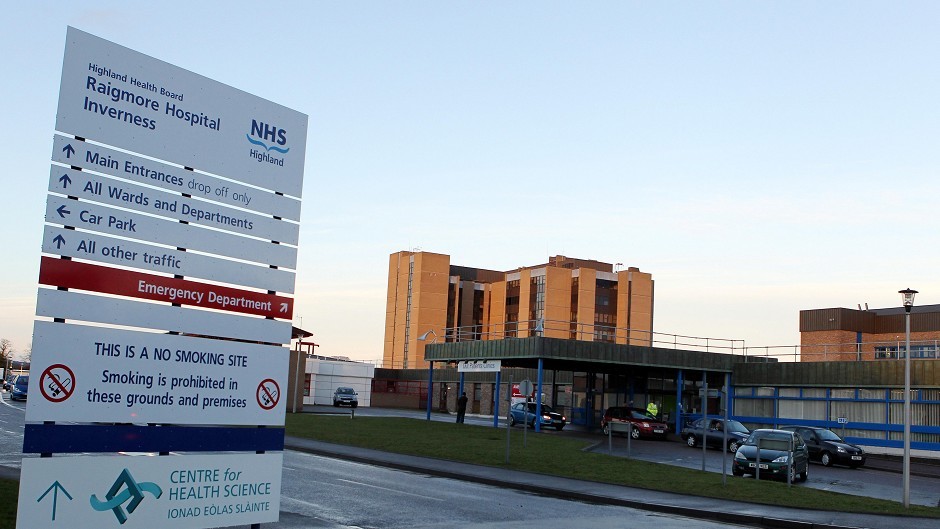The north’s flagship hospital is aiming to “re-educate” its staff on the importance of hand-washing after being rocked by a recent outbreak of a sickness virus.
Raigmore Hospital in Inverness temporarily banned all visitors last month after nearly 50 patients in three wards contracted norovirus.
All wards have now re-opened after the closures helped stem the spread of the bug, which causes diarrhoea, nausea and vomiting.
But local health chiefs are taking action to try to prevent any repeat by putting their staff through a hand-cleaning course.
From Monday, the “clean hands save lives” message will be taken to every ward at Raigmore as part of a “roadshow” that is expected to last two weeks.
Glow boxes, which use ultraviolet light, will test hospital workers on their own hand hygiene.
There will also be information stands in the hospital’s main corridor and dining room to encourage members of the public to join in as well.
Ann Chalmers, infection prevention and control nurse, said: “Keeping hands clean is one of the most important ways of preventing the spread of infection and illness.
“Our aim is to remind and re-educate on the importance of hand hygiene and when you should be washing your hands.
“There are five moments when hands should be washed when you are with patients and we will be making sure that everyone is clear on those points.”
She added that the “key moments” were before touching a patient, before a cleaning procedure, after body fluid exposure, after touching a patient, and after touching the patient’s surroundings.
Frequent hand-washing is known to prevent norovirus, particularly after using the toilet and before preparing food.
Commonly known as the “winter vomiting bug”, it is highly contagious and one of the most common stomach bugs in the UK.
The first sign is usually a sudden sick feeling and symptoms usually last a couple of days, although it can be longer in elderly people.
